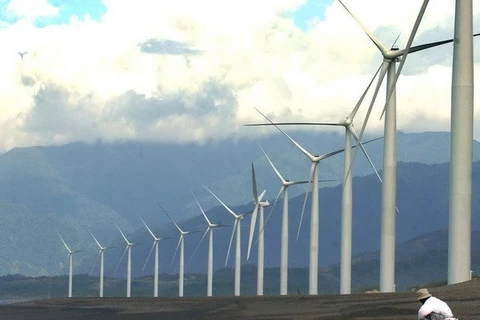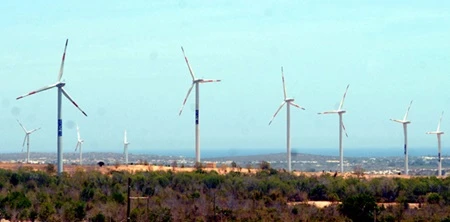HCM City (VNA) – German company GIZ and the General Directorate of Energy on March 31 hosted a consultation workshop for the National Biomass Energy Development and Utilization Planning.
The workshop was facilitated by the Ministry of Industry and Trade/GIZ Energy Support Programme under the “Renewable Energy and Energy Efficiency” (4E) project to help Vietnam utilise this source of energy to meet the objectives set in its Renewable Energy Development Strategy.
The 4E project is implemented by GIZ on behalf of the German Federal Ministry for Economic Cooperation and Development, and co-funded by the United States Agency for International Development and the Czech Government.
The workshop targeted relevant ministries including those of industry and trade, planning and investment, agriculture and rural development, natural resources and environment, and provincial agencies.
It aimed to gather opinions from participants to finalise the National Biomass Planning Study report and improve methodologies on biomass planning.
The study will be a document guiding policy makers and managers to assess the development potential, current exploration and utilisation status of biomass for power generation, economic and ecological benefits for converting crude resources into end-use energy and compatibility with national socio-economic development to draw up a roadmap for the exploration and utilisation of biomass effectively and sustainably.
According to Nguyen Duc Cuong, a representative of the Institute of Energy, Vietnam’s electricity demand has increased by 13 percent a year for the past 10 years.
He forecast the demand to quadruple in 15 years due to the country’s rapid industrialisation.
Vietnam has huge potential for biomass power generation from straw, rice husk, bagasse, coffee husk, peanut shell, sawdust, waste from coconut trees, and others, which are available almost in every province, he added.
If utilised effectively, biomass energy will not only reduce dependence on traditional energies, reduce carbon emissions and environmental pollution but also benefit biomass producers and farmers who sell residues and agricultural and forestry by-products.
The Institute of Energy also named 25 provinces and cities that are expected to be studied this month to utilise biomass.
GIZ supports the German Government in achieving its objectives in the field of international cooperation for sustainable development.-VNA
























